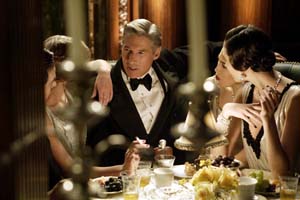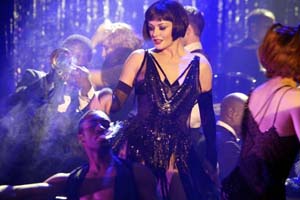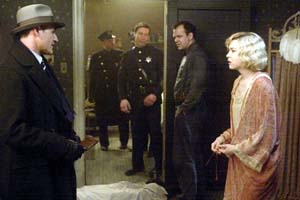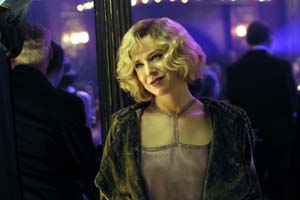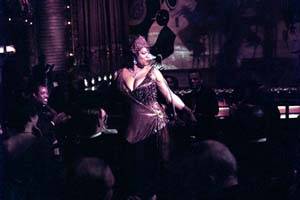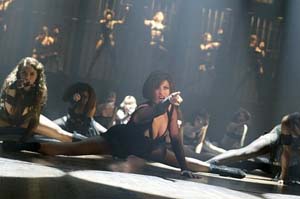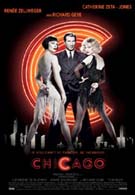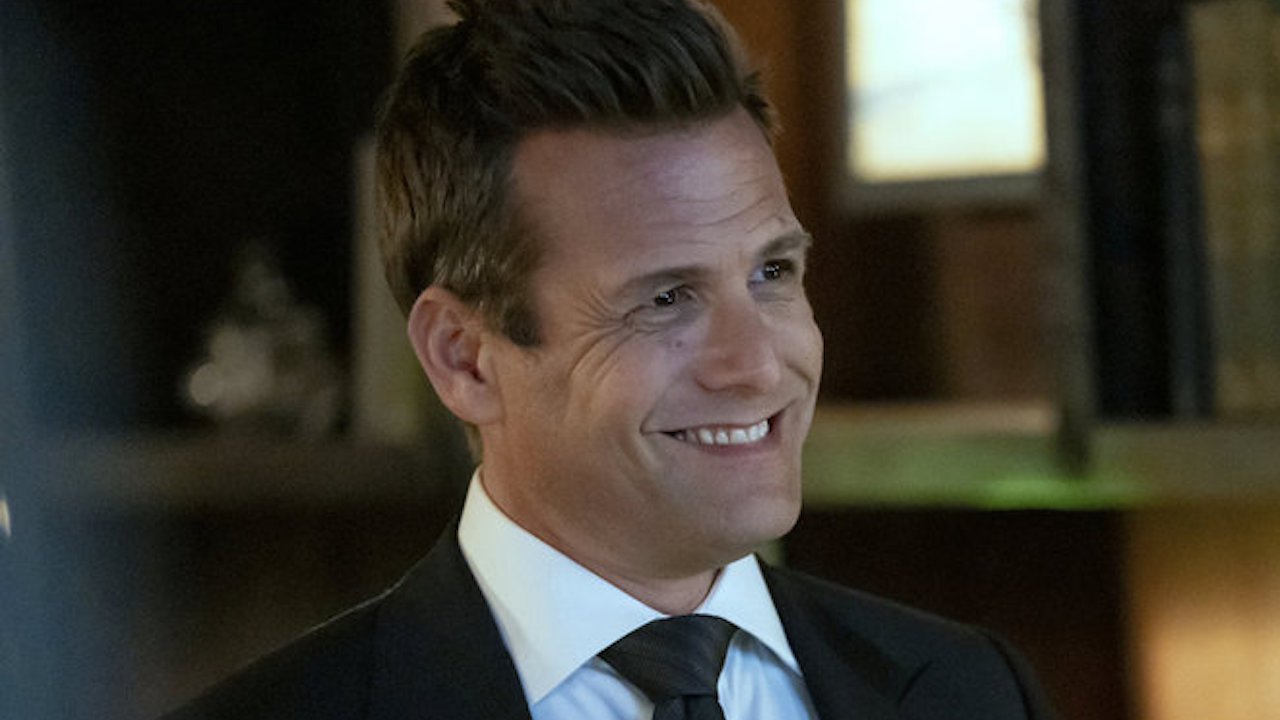The movie musical has been dead since classics like Grease disappeared from the marquee and unbearable oddities such as Xanadu and The Village People's Can't Stop The Music appeared in its place. There was one attempt in 1992 to resurrect the beloved feelings that these films evoked when Disney introduced its high concept megaflop, Newsies, about the paperboy strike in turn-of-the-century New York. The film failed to remind critics or audiences of how special a musical can be. Since then, this famed genre has rested, awaiting a film to signal its rebirth. Like a shot of adrenaline pounded straight into the heart, Chicago is the musical that devotees have dreamt of for more than two decades. Unlike the winningly hyper-kinetic Moulin Rouge, which brought the modern musical into today’s mainstream by juicing it up with pop hits, Chicago does not try to update the genre. The film is unabashedly old-fashioned without being corny or clichéd because the themes of greed and corruption are timeless. The 30's still seem fresh thanks to Director Rob Marshall’s approach to the story.
Based on the popular Broadway show, Chicago begins with a bang, literally, as seductive songstress Velma Kelly (the always stunning Catherine Zeta-Jones) rushes into the club where she has become a nighttime sensation after murdering her sister and husband, who had been carrying on an affair while the sisters were part of a double act. After a spectacular rendition of “All That Jazz,” Kelly is arrested in front of the crowd. One of the admirers who witnesses it all is Roxie Hart (Renee Zellweger), an unfaithful housewife who hopes that she can find a man to get her into the entertainment business. Some time later, while having an affair with a furniture salesman (Dominic West) whom she believes has “connections,” she discovers that he had lied to make his way into her pants. As any angry woman would do, she kills him.
So she is hauled off to a women’s correctional facility to await trial. There she encounters Ms. Kelly once more and is introduced to Billy Flynn (Richard Gere), a hotshot lawyer who could turn lead into gold. Already defending Ms. Kelly, Billy decides to take on Roxie’s case, seeing the potential for mass publicity and cash flow. Because both women have suitably transformed into publicity hounds, a feud begins between Velma and Roxie.
The glitz, glamour, and every sleazy but joyfully entertaining moment all add up to this wonderfully splashy, flashy film. The musical has always been the type of film that should expect a physical reaction from the audience if it were done right. Like laughter to a comedy, a musical is supposed to make you want to sing and dance along with the cast or, for that matter, the audience. I was repeatedly tempted to jump up and down with joy that such a film could be created.
Chicago is magnificently staged, too. The slippery, dangerously sexy moves of Bob Fosse remain intact as every dance becomes about seduction, where backstabbing and betrayals are celebrated, and sex is currency. In chipper, satirical numbers, such as “We Both Reached For The Gun,” the manipulation of the media-hungry public is shown in all of its artificial glory. Every opportunity to make the film as lively and joyous as possible is never overlooked. As a result, you may have to give into temptation and start dancing in the aisles.
Yet the film is not made in the same fashion as the traditional musical. In the past, the musical numbers would break out as people were discussing or contemplating something. Seeing the opportunity to express the feeling of the moment, whether of longing or lament, everyone would sporadically break out into an elaborate song and dance. The most ingenious surprise is that the characters do not morph into performers. Every scene plays out as a comedy-drama, only that it is cut in with a musical number that could either be the fantasies of these characters, reliving the moment as it were a big show to them or the director simply interpreting every circus-like moment as the performance that it truly is.
With some of the most unexpected casting decisions, the gamble pays off. Every actor seems perfectly cast in his or her respective role. Admittedly, I was weary of Catherine Zeta-Jones as the saucy Velma. Just from looking at her, one could see that she has such a refined, delicate grace that casting her as a conniving murderess sounds ridiculous. It is that refined quality that she uses so delicately to trick the viewer into believing that she is innocent. Similarly, Ms. Zellweger would have appeared to be in the wrong movie if it weren’t for the fact that beneath her sugary exterior lies a sneaky, angel-faced quality. Rounding up the performances is Mr. Gere. Many actors could have pulled off the role of cash-adoring Flynn, yet Gere seems perfectly cast thanks to his surprisingly cheeky turn.
Director Rob Marshall, who helmed the charming TV-remake of Annie, succeeds by refusing to tamper with the original material. I saw the revival some time last year and eagerly anticipated a screen version, yet feared that something could be lost in the translation. Every bit of satire, humor, and charm remains as strong here as ever. There are no needless jabs at modern society inserted only for the purpose of being modern. We can only hope for such a fate to meet the eternally delayed Phantom of The Opera film adaptation.
Maybe Chicago knows that it is the perfect musical. It’s fitting that a black comedy so deviously clever would feature the lyric “Isn’t it grand? Isn’t it great? Isn’t it swell?”played toward the end. To answer the question as if it were being posed about this very movie, it’s all that and more.
